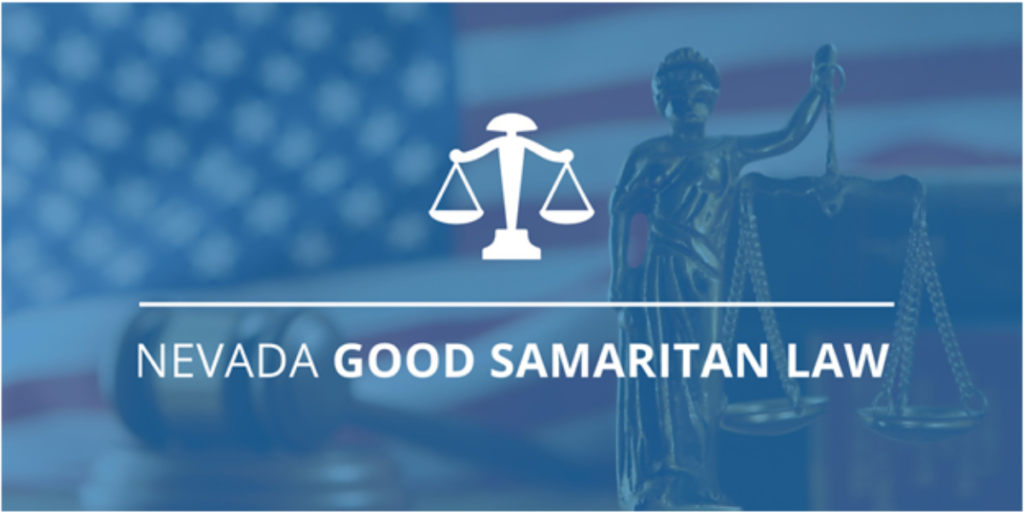
Nevada Good Samaritan Law – Picture the scene: You are standing in line at the grocery store ready to pay for your items when suddenly the customer behind you goes into cardiac arrest and collapses onto the floor. Instinctively, you immediately begin performing CPR in an effort to save their life.
After a minute or two of compressions, you are relieved to find that the patient’s heart has begun to beat once more. They are then swiftly transported to the local hospital and you are left feeling glad that you were able to help another human being in their time of need.
A few weeks later, you walk to your mailbox and find a letter that informs you that the customer you performed CPR on intends to file suit against you. They allege that you broke their ribs while carrying out the chest compressions and believe that you should pay for the associated medical bills.
Fortunately, the Nevada Good Samaritan law is in place to protect you.
What is the Nevada Good Samaritan law?
Nevada’s Good Samaritan law (NRS 41.500) allows witnesses to an emergency situation to provide aid without worrying about legal liability. It was put into place to encourage bystanders to help out in any way that they can without fear of negative consequences. As long as your efforts to assist are genuine, you are protected from damages.
Are there any exceptions to Nevada’s Good Samaritan law?
As you might expect, there are a few notable exceptions to the Nevada Good Samaritan law. These exceptions are best categorized as follows:
Gross Negligence or Intentional Harm
While NRS 41.500 will provide you with legal protection if you are making a genuine effort to help in an emergency situation, you can lose that liability shield if your assistance is grossly negligent or causes intentional harm to the other party. In other words, if you do something that is clearly wrong or designed purely to cause injury to the other person, you may be liable for damages.
Duty to Provide Aid
If you are legally obligated to provide assistance in the event of an emergency, you may not be covered under Nevada’s Good Samaritan law. For instance, if you run a pre-school and one of your students has a medical emergency, you have a legal duty to help them. If your assistance causes damages, you could be held liable.
Payment
To be covered under Nevada’s Good Samaritan law, you cannot be paid for the help that you provide. This means that if you are providing medical assistance while working as a paramedic or first responder, you may be subject to legal liability if something were to go wrong and it is your fault.
Cause of Emergency
Nevada’s Good Samaritan law is designed to protect innocent bystanders in the event of an emergency. If the emergency began as a result of your actions, you will not be covered under the law. For instance, if you provide medical assistance to an injured party in the aftermath of a motorcycle accident that you were at fault for, the law is unlikely to protect you.
Does Nevada’s Good Samaritan Law create an obligation to provide assistance in the event of an emergency?
The Nevada Good Samaritan law was created to encourage bystanders and witnesses to help out when an emergency occurs. However, it does not create any legal obligation to assist. If you are in shock or feel that you are otherwise unable to provide aid, you do not have to.
Cap and Kudler – Experienced Las Vegas Personal Injury Attorneys
With almost 30 years of experience behind us, the Cap and Kudler team are well versed in just about every aspect of personal injury law – including the Nevada Good Samaritan law. If you feel that the law may have an impact on your case, please do not hesitate to reach out to us for guidance and support. You can call us at (702) 878-8778 or contact us online if you would prefer.
